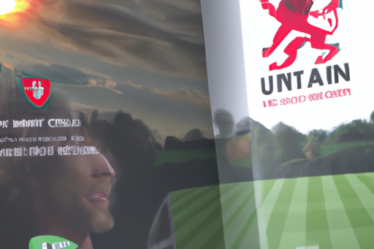
Impact of COVID-19 on Travel and Tourism Industry Deal Activity
The COVID-19 pandemic has had a devastating impact on various industries, and one of the hardest-hit sectors is travel and tourism. With travel restrictions, lockdowns, and fear of the virus, people have been hesitant to travel, resulting in a significant decline in travel and tourism industry deal activity. In fact, recent reports indicate a staggering 41% decline in deal activity within this sector.
The travel and tourism industry is a vital part of the global economy, contributing trillions of dollars and millions of jobs worldwide. However, the pandemic has brought this thriving industry to a standstill. As countries implemented travel bans and closed their borders, airlines, hotels, and other travel-related businesses faced unprecedented challenges. With no customers and mounting losses, many companies were forced to shut down or lay off employees.
The decline in travel and tourism industry deal activity can be attributed to several factors. Firstly, the uncertainty surrounding the pandemic has made investors wary of putting their money into this sector. With no clear timeline for when travel restrictions will be lifted and when people will feel safe to travel again, investors are hesitant to make any significant investments. This cautious approach has resulted in a decline in mergers, acquisitions, and other deal activities within the industry.
Secondly, the financial strain on travel and tourism businesses has made them less attractive to potential investors. With revenues plummeting and fixed costs remaining high, many companies in this sector are struggling to stay afloat. This financial instability makes it difficult for them to attract investors who are looking for stable and profitable opportunities. As a result, deal activity within the industry has taken a hit.
Furthermore, the pandemic has also changed consumer behavior and preferences when it comes to travel. People are now more concerned about their health and safety, and are opting for local or domestic travel instead of international trips. This shift in consumer behavior has led to a decline in demand for international flights, hotels, and other travel-related services. As a result, companies in the travel and tourism industry are facing reduced revenues, making them less attractive to investors.
The decline in travel and tourism industry deal activity has far-reaching consequences. Not only does it impact the companies directly involved in the industry, but it also affects the entire supply chain. Airlines, hotels, restaurants, and other businesses that rely on tourism for their survival are also feeling the pinch. The decline in deal activity means fewer opportunities for growth, expansion, and innovation within the industry.
However, there is hope on the horizon. As vaccination efforts ramp up and countries begin to ease travel restrictions, there is optimism that the travel and tourism industry will bounce back. Investors who are willing to take a long-term view and see the potential for growth in this sector may find attractive opportunities. Additionally, companies within the industry are adapting to the new normal by implementing health and safety measures and offering flexible booking options to instill confidence in travelers.
In conclusion, the COVID-19 pandemic has had a significant impact on travel and tourism industry deal activity, with a 41% decline reported. The uncertainty surrounding the pandemic, financial strain on businesses, and changing consumer behavior have all contributed to this decline. However, as the world slowly recovers from the pandemic, there is hope for a revival in the travel and tourism industry. Investors and companies that are willing to adapt and innovate may find opportunities for growth in this resilient sector.
Strategies to Revive the Travel and Tourism Industry Deal Activity

The travel and tourism industry has been hit hard by the global pandemic, with a decline of 41% in deal activity. This has had a significant impact on businesses and individuals who rely on this industry for their livelihoods. However, there are strategies that can be implemented to revive deal activity and help the industry recover.
One strategy is to focus on domestic tourism. With international travel restrictions still in place in many countries, people are looking for alternative ways to satisfy their wanderlust. By promoting and investing in domestic tourism, businesses can attract local travelers and stimulate deal activity. This can be done through targeted marketing campaigns that highlight the unique attractions and experiences available in different regions. Additionally, offering special deals and discounts for domestic travelers can incentivize them to explore their own country.
Another strategy is to adapt to changing consumer preferences. The pandemic has shifted the way people travel and the types of experiences they seek. For example, there has been a rise in demand for outdoor activities and nature-based tourism. Businesses can capitalize on this trend by offering packages that cater to these preferences. This could include guided hikes, wildlife tours, or camping experiences. By aligning their offerings with current consumer interests, businesses can attract more customers and increase deal activity.
Collaboration is also key to reviving the travel and tourism industry. By working together, businesses can pool resources and expertise to create innovative deals and packages. This could involve partnering with other businesses in the industry, such as hotels, airlines, and tour operators, to offer bundled deals that provide added value to customers. Collaborative efforts can also extend to government agencies and tourism boards, who can provide support and incentives to businesses to stimulate deal activity. By fostering a spirit of cooperation, the industry can bounce back stronger than ever.
Furthermore, embracing technology can play a crucial role in reviving deal activity. The pandemic has accelerated the adoption of digital solutions, and businesses in the travel and tourism industry need to keep up with these changes. This could involve implementing online booking systems, virtual tours, and contactless payment options. By providing a seamless and convenient experience for customers, businesses can attract more bookings and increase deal activity. Additionally, leveraging social media and online platforms can help businesses reach a wider audience and generate interest in their offerings.
Lastly, it is important for businesses in the travel and tourism industry to prioritize health and safety measures. Travelers are now more conscious of their health and safety when planning trips. By implementing rigorous cleaning protocols, enforcing social distancing measures, and providing transparent information about health and safety practices, businesses can instill confidence in customers and encourage them to book deals. Prioritizing the well-being of customers will not only help revive deal activity but also contribute to the long-term sustainability of the industry.
In conclusion, the travel and tourism industry has experienced a significant decline in deal activity due to the global pandemic. However, by implementing strategies such as focusing on domestic tourism, adapting to changing consumer preferences, collaborating with other businesses and government agencies, embracing technology, and prioritizing health and safety measures, the industry can revive deal activity and pave the way for a brighter future. It is through collective efforts and innovative approaches that the travel and tourism industry can bounce back and thrive once again.
Future Outlook for Travel and Tourism Industry Deal Activity
The travel and tourism industry has been hit hard by the global pandemic, with a decline of 41% in deal activity. This sharp decrease in mergers, acquisitions, and investments has left many wondering about the future outlook for the industry. While the current situation may seem bleak, there are reasons to be optimistic about the recovery and resurgence of the travel and tourism sector.
One of the main factors contributing to the decline in deal activity is the uncertainty surrounding travel restrictions and border closures. With countries implementing strict measures to control the spread of the virus, travel has come to a standstill. This has resulted in a decrease in demand for travel-related services and a reluctance among investors to commit to deals in such an uncertain environment.
However, as vaccination efforts continue to ramp up and more people become protected against the virus, there is hope for a gradual reopening of borders and a return to normalcy. This will likely lead to an increase in travel demand and a resurgence in deal activity within the industry. Investors are likely to see this as an opportunity to capitalize on the recovery and invest in travel and tourism businesses that have been severely impacted by the pandemic.
Another reason for optimism is the pent-up demand for travel. After months of being confined to their homes, people are eager to explore new destinations and experience the joy of travel once again. This pent-up demand is expected to drive a surge in travel bookings and create opportunities for businesses in the travel and tourism sector. Investors who recognize this potential are likely to be more willing to engage in deal activity and support the recovery of the industry.
Furthermore, the pandemic has forced many businesses in the travel and tourism sector to adapt and innovate. Companies have had to find new ways to attract customers and provide safe and enjoyable travel experiences. This has led to the emergence of new business models and technologies that are likely to shape the future of the industry. Investors who are forward-thinking and willing to embrace these changes are likely to find attractive opportunities for investment and partnership within the travel and tourism sector.
In addition to these factors, government support and stimulus packages have played a crucial role in helping businesses in the travel and tourism industry survive the pandemic. As economies recover and governments continue to provide support, businesses will have the necessary resources to rebuild and grow. This will create a favorable environment for deal activity and investment within the industry.
While the decline in travel and tourism industry deal activity has been significant, there are reasons to be hopeful about the future. As vaccination efforts progress and travel restrictions ease, demand for travel is expected to rebound. This, coupled with pent-up demand and innovative business models, creates opportunities for investors to support the recovery and growth of the industry. With government support and stimulus packages, businesses will have the necessary resources to rebuild and thrive. As we look ahead, it is important to remain optimistic and recognize the potential for a resurgence in travel and tourism industry deal activity.


